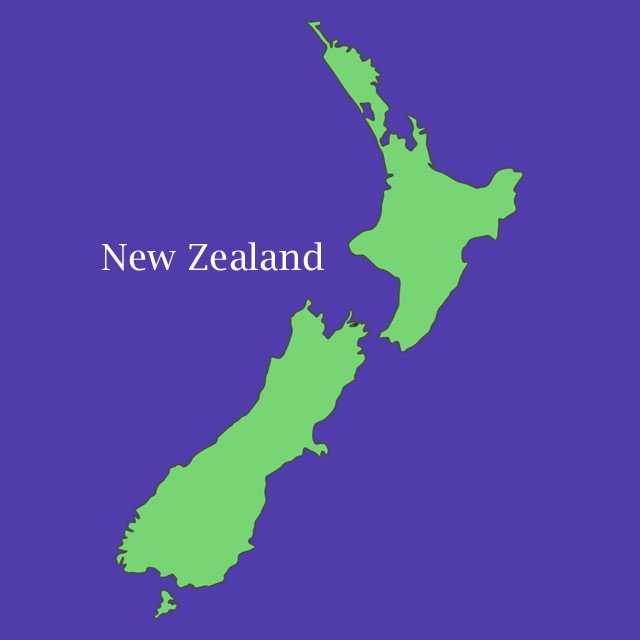James Greenland of Robert Walters plc New Zealand writes……
Last issue, I wrote that empathy has proved more powerful than protest in the developing campaign to loosen New Zealand’s prohibitive cannabis laws.
But while emotion continues to spark and fuel the national conversation, it now seems that economic arguments might win the debate.
A recent poll of more than 1000 people indicates that, for the first time in this country, more than half of eligible voters are keen to see ‘personal use’ cannabis laws loosened – with an even larger majority (up to 80%) backing legalisation of prescribed medicinal cannabis products (more accurately, further de-regulation – as certain cannabis-derived medical products are currently legal and prescribed to about 40 patients who have been approved by the Ministry of Health).
New Zealand Drug Foundation executive director Ross Bell says the poll shows voters understand the issue better than our politicians, and “that the current approach – the 40 year old approach – that we’ve taken hasn’t done anything to arrest New Zealand’s cannabis use and maybe it’s time to try something new”.
Prohibition is meant to minimise harm, but harms associated with recreational cannabis use (or abuse) continue to exist in New Zealand, despite the plant’s illegal status.
“If we flip it around, remove the criminal justice approach, put in a health approach, then we might actually grow up in New Zealand and start dealing with cannabis in the way that it should always be dealt with,” Bell says.
At the centre of national drug research and policy, Bell is well positioned to speak to the New Zealand public’s increased willingness to see marijuana laws loosened.
But our politicians remain staunchly uninterested, continuing to consider drug-reform a political ‘poisoned chalice’.
The zeitgeist feels right, and the public are apparently ready, but no MP wants to champion the cause and leave a blue-haze of recreational (or even medicinal) pot smoke in wake of their political legacy. They might impress some younger and more liberal voters with a talk of reform, but in New Zealand core social issues like health, housing and education continue to dominate political discourse and determine elections.
The decades-old ‘status quo’ is politically far safer than a Brave New World of regulated drug use that – not involving a beer or wine-glass, coffee cup or tailor-made tobacco filter – most ‘baby-boomer’ law-makers (and voters) don’t well, and don’t want to, understand.
Prime Minister John Key told Radio New Zealand that Police don’t “generally” prosecute people who used cannabis for medicinal reasons, and that frontline officers used their “judgement” regarding personal use.
“There are always tolerances and margins,” he says. He ignores the obvious.
In those margins and judgement is intolerance and more subtle institutional-bias, most-usually reserved for young, often male, Maori and Pacific Islanders who, while perhaps well represented amongst those who use marijuana recreationally, are definitely well over-represented with regard to charges and convictions for ‘personal use’ cannabis possession.
Government is consciously prejudicing certain sectors of society and is “palming off those in pain”, suggests a recent Dominion Post editorial
Our politicians prefer to “prevaricate with talk of health bureaucracy and police discretion” rather than engage in reasoned discussion about reform.
“By now, after a year of well-publicised campaigning by people suffering terminal and other debilitating illnesses, the case for allowing the very sick to access cannabis should be clear.”
The “current system is clearly failing”, it unwaveringly asserts.
The current prohibition of cannabis “sees thousands of people arrested annually … it still funnels millions of dollars to gangs”.
“It still penalises a practice that nearly half of New Zealanders admit to trying.”
The leader of New Zealand’s opposition party, Labour’s Andrew Little, is a little more open to talk about reform than Key, but has also stated that higher on his party’s agenda are issues relating to the ‘housing crisis’ and education. He says he’s up for public debate, but that that needs to be informed by “good scientific, medical information”.
But, it’s not easy to get that information while marijuana remains so strictly regulated.
Freeing scientific and medical institutions to research cannabis, and capitalising on the economy that generates, is one of many arguments made in favour of cannabis law reform by New Zealand Institute of Economic Research principal economist Peter Wilson in a paper released this week that turns the cannabis conversation from talk of rights and feelings to fiscal analysis and counterfactuals.
“Legalisation for personal use could result in a greater willingness of firms to use available procedures to conduct clinical trials of medical uses of marijuana and cannabis.
“…there would be a low risk of harm to anyone, but the potential for New Zealand to capture a niche market built on our exisiting reputation as being a good place to conduct research and commercialise innovations”.
NZIER’s report follows calls by a horticulture advocate in NZGrower magazine for regulation and taxation of marijuana cultivated in New Zealand’s reputedly ideal-for-cannabis growing climate.
When one compares the value of a kilogram of medicinal cannabis with a kilogram of Pinus Radiata (the, ubiquitous-in-NZ, pine tree) it’s clear that New Zealand “should be producing, and exporting, high-value and low volume products” he wrote.
Reform makes fiscal sense, and would bring dollars into the economy, say the most recent and factually-reasoned, participants in the national debate.
Under NZIER’s analysis the better way, than prohibition, to reduce the potential harm marijuana use is “legalisation, combined with heavy taxation, regulation and education”. Read the full NZIER Insight, here .
Regulation and taxation could give NZ $150 million NZD in additional revenue, and reduce spending on drug enforcement by $180 million the NZIER says.
A $330 million net benefit to the economy.
Even the most conservative voters and politicians take notice of that kind of cash.
Those kind of numbers might just win the debate.




